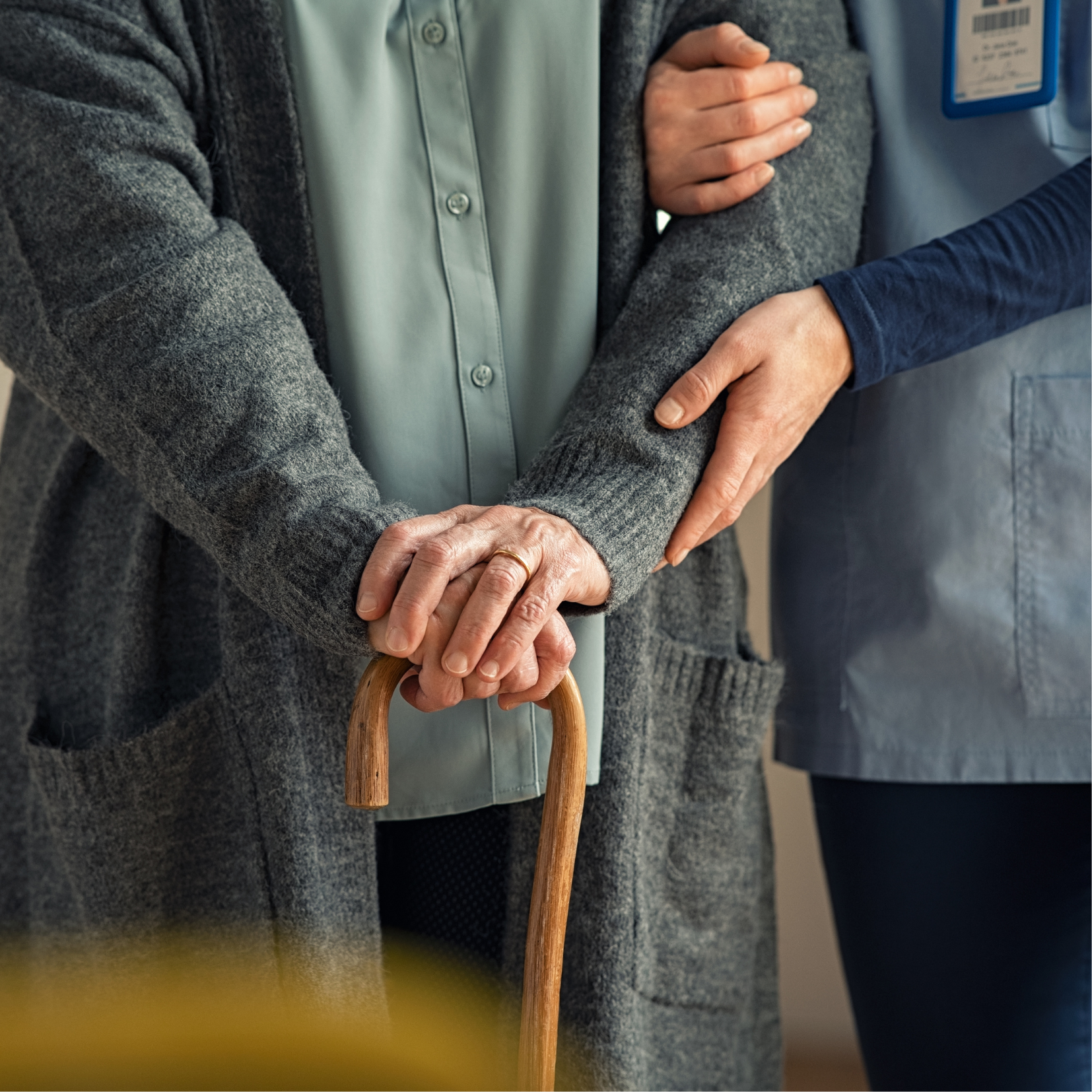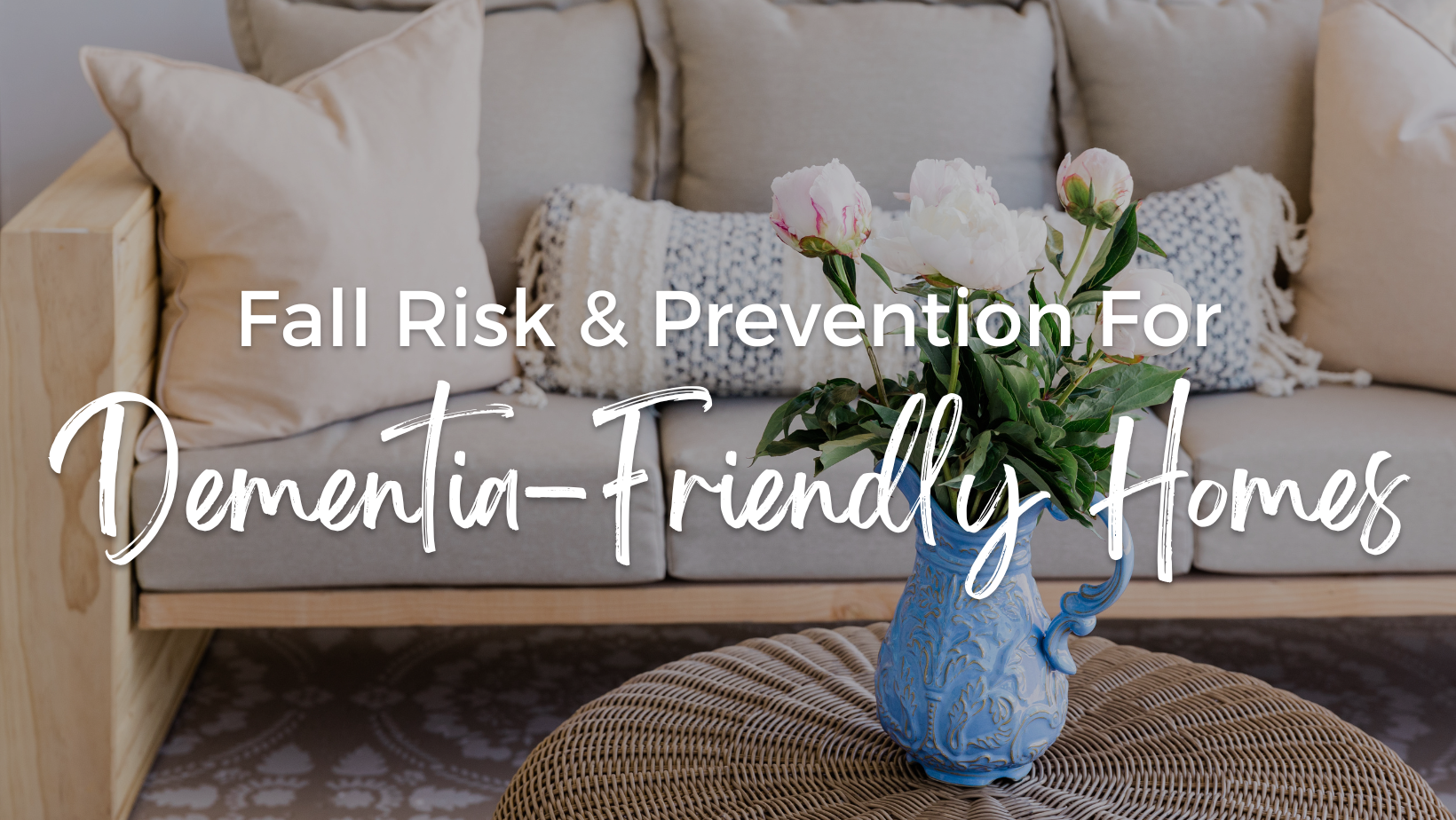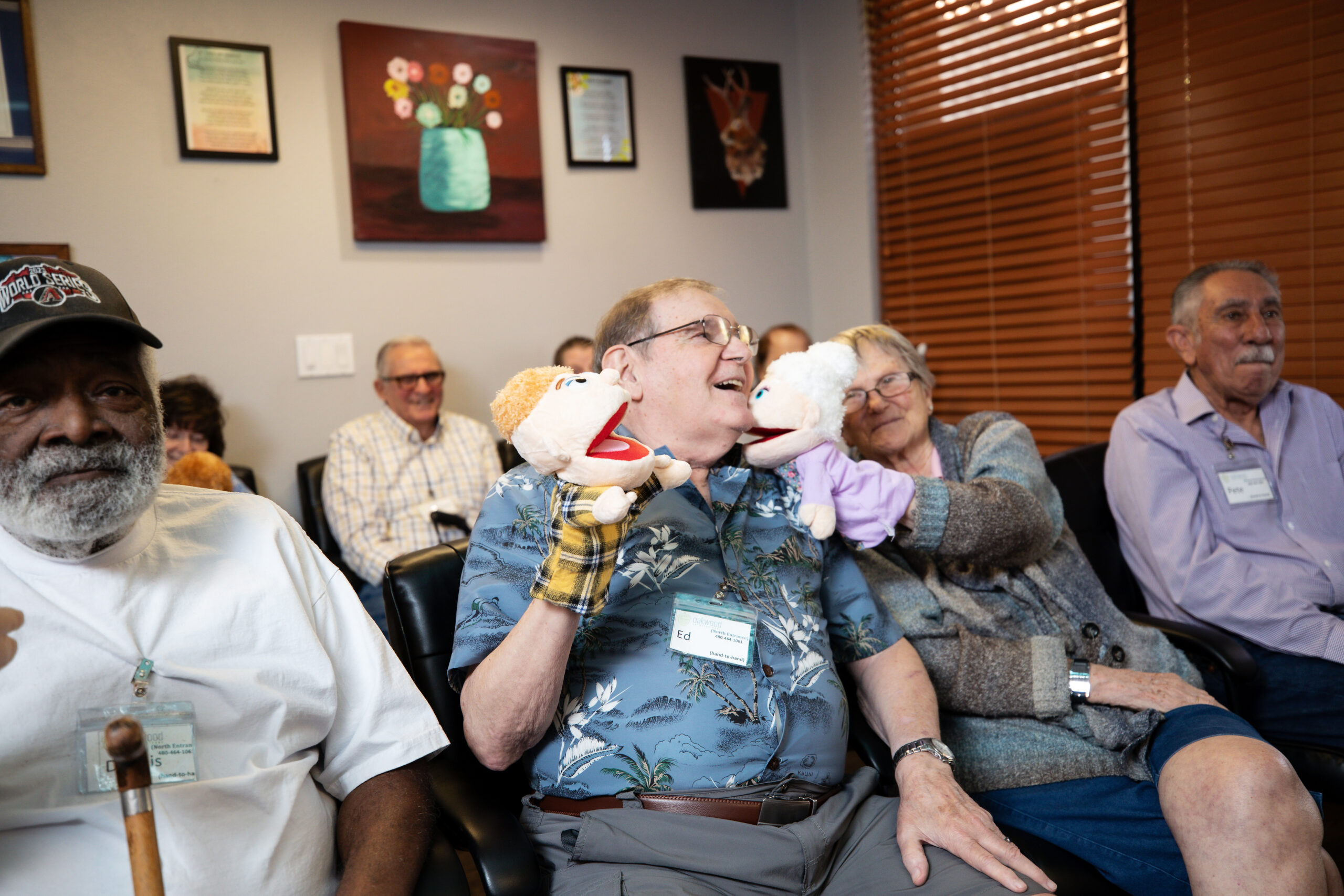Keeping your loved one with dementia safe from suffering a fall can sometimes be a difficult task. Because of impairments to their brain’s functionality, loved ones with dementia may experience lapses in memory or judgment, and changes to their physical state may make falls increasingly more likely to occur. Furthermore, some studies have shown that the risks of being institutionalized after sustaining an injury from a fall are five times higher for older adults with dementia than for those without. Falls can drastically change your loved one’s quality of life, but knowing the risks and what steps you can take to avoid a fall is the first move forward in promoting your loved one with dementia’s overall safety and independence.
What Factors Increase The Risk Of A Fall For A Person With Dementia?
The stages and progression of dementia are different from person to person, making every situation unique in its own way. According to the NHS, several personal risk factors could cause someone to fall; however, a loved one with dementia may be at greater risk if they:
- experience problems with mobility, balance, and muscle weakness
- have difficulties with memory and finding their way around
- have difficulties processing what they see and reacting to situations
- take medicines that make them drowsy, dizzy, or lower their blood pressure
- are at a greater risk of feeling depressed
- find it difficult to communicate their worries, needs, or feelings

Environmental awareness also plays a significant role in recognizing and avoiding the risk of a fall. Many older adults with dementia are affected by visuoperceptual mistakes, and defects in flooring, such as holes, dents, or reflective lighting, can threaten their balance. Research shows dementia advancements with progressive deterioration can increase environmental demands, leading to increased difficulties with managing everyday tasks.
Simple Changes You Can Make At Home To Prevent Falls
Now that we understand what factors may be associated with a higher risk of falls, consider some of these easy and subtle changes you can make in your own home to help ensure your loved one with dementia can move about safely and comfortably. Some of these tips include anticipating your loved one’s needs and then taking a few extra steps to allow accessibility and independence. For additional suggestions, check out the Alzheimer’s Society’s outline on Reducing Risk Of Falls For People With Dementia.

Create Adequate Lighting
Your loved one with dementia might experience difficulties with their vision and recognizing what they see, especially in dimly lit rooms. For this reason, you will want to reduce any shadows by increasing the amount of light in the room. You can do this by using nightlights in hallways and bathrooms, installing lights in closet spaces, using motion-sensor lighting, and opening drapes during the day.
Secure The Floor
Some older adults with dementia may have trouble with gait and balance, making walking across rugs or uneven floors exceptionally dangerous. You can help ensure your loved one’s safety by securing any rugs or mats with double-sided tape, replacing damaged or scattered floor pieces, tucking away electrical and extension chords, and keeping all pathways clear.

Increase Bathroom Safety
Inside showers and bathtubs, place a non-slip bathmat that offers an apparent visual contrast (i.e., a vibrant-colored mat against a solid white bathtub). You might also consider installing durable medical equipment to make bathroom time more comfortable, such as adding a bath chair or bench, grab bars, and a hand-held showerhead.

Use A Nightstand To Your Advantage
One step you can take to help lessen your loved one’s risk of falling at night would be to enhance their accessibility to wanted items. Place any important items, such as water, glasses, and a phone, in a consistent, visible, and easy-to-reach place like their nightstand. Keeping these items handy will make for fewer trips in the middle of the night for both you and your loved one.
P.S. Did you know Oakwood Creative Care is bringing back the JOY in aging? We believe a diagnosis should not have to define your life. Instead, we have devoted our mission to reigniting hope for caregivers and older adults with Alzheimer’s, dementia, and other age-related challenges. Click the button below to learn more about how we do this through our research-based, cutting-edge, creative care model found at each of our Day Clubs.








